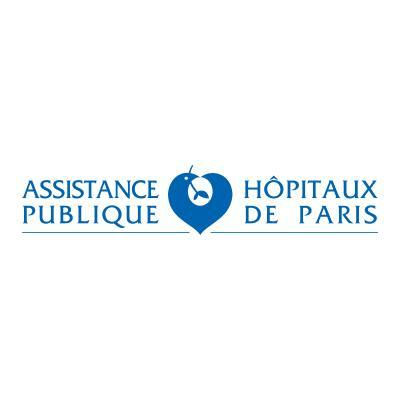预约演示
更新于:2025-05-07
Congenital Central Hypoventilation Syndrome
先天性中枢性通气不足综合征
更新于:2025-05-07
基本信息
别名 AUTONOMIC CONTROL, CONGENITAL FAILURE OF、Autonomic Control, Congenital Failure of、CCHS + [37] |
简介 A disorder characterized by hypoventilation and hypoxemia. It appears early in life and is not associated with cardiopulmonary or neuromuscular abnormalities. |
关联
1
项与 先天性中枢性通气不足综合征 相关的药物靶点 |
作用机制 CRHR1拮抗剂 |
在研适应症 |
最高研发阶段临床2期 |
首次获批国家/地区- |
首次获批日期1800-01-20 |
17
项与 先天性中枢性通气不足综合征 相关的临床试验NCT06554275
CCHS SHARE: A Multi-center Longitudinal Natural History Study
The purpose of this study is to capture longitudinal natural history data in Congenital Central Hypoventilation Syndrome (CCHS). This will include capturing standardized clinical data from standard of care assessments at several CCHS referral centers. Funding source-FDA OOPD
开始日期2024-09-01 |
NCT06337149
Relationship Between Breathing and Attention in Children With Ondine Syndrome
Congenital central hypoventilation syndrome (CCHS) is a rare disorder of autonomic and respiratory regulation that alters oxygen delivery to the brain. CCHS patients are at risk for broad neurocognitive deficits. Patients retain ventilatory activity when awake through a respiratory-related cortical network but the need to mobilise cortical resources to breathe lead to breathing-cognition interferences during cognitive tasks. The purpose of this study is to assess the relationship between breathing pattern and attention in CCHS children
开始日期2024-02-29 |
NCT04447196
Prevalence of Rest Dyspnea and Impact of Non Invasive Ventilation on Breathing Sensations in Patients With Congenital Central Hypoventilation Syndrome
Congenital central hypoventilation syndrome (CCHS) is a neuro-respiratory disease characterized by lifethreatening sleep-related hypoventilation involving an alteration of CO2/H+ chemosensitivity. This suggests cortical activity during awakening to maintain breathing. Cortical activity to keep breathing is usually associated with breathing discomfort ; this is the case in healthy subjects under non invasive ventilation (NIV) or with expiratory charge as well as in patients with amyotrophic lateral sclerosis. This can suggest that CCHS may be breathless at rest and this discomfort could be reduced by NIV.
The objective is to evaluate dyspnea with a multi dimensional score, MDP, in CCHS patient at rest in every day life and during 1H session of NIV.
The investigators will perform a prospective, including 20 CCHS patients. MDP scores will be measure before and after 1H-non invasive ventilation as well as a visual scale of 100mm in order to evaluate variation of breathing discomfort before/after NIV.
The investigators expect that CCHS patients don't have rest dyspnea but NIV would improve breathing discomfort that would mean they have latent rest dyspnea.
The objective is to evaluate dyspnea with a multi dimensional score, MDP, in CCHS patient at rest in every day life and during 1H session of NIV.
The investigators will perform a prospective, including 20 CCHS patients. MDP scores will be measure before and after 1H-non invasive ventilation as well as a visual scale of 100mm in order to evaluate variation of breathing discomfort before/after NIV.
The investigators expect that CCHS patients don't have rest dyspnea but NIV would improve breathing discomfort that would mean they have latent rest dyspnea.
开始日期2021-12-15 |
申办/合作机构- |
100 项与 先天性中枢性通气不足综合征 相关的临床结果
登录后查看更多信息
100 项与 先天性中枢性通气不足综合征 相关的转化医学
登录后查看更多信息
0 项与 先天性中枢性通气不足综合征 相关的专利(医药)
登录后查看更多信息
1,399
项与 先天性中枢性通气不足综合征 相关的文献(医药)2025-12-31·Pulmonology
Defective exercise-related expiratory muscle recruitment in patients with PHOX2B mutations: A clue to neural determinants of the congenital central hypoventilation syndrome
Article
作者: Dudoignon, B. ; Cayetanot, F. ; Bret, M. ; Bodineau, L. ; Similowski, T. ; Morélot-Panzini, C. ; Fossé, Q. ; Straus, C. ; Patout, M. ; Llontop, C. ; Laveneziana, P.
2025-04-01·Journal of Pediatric Hematology/Oncology
PHOX2B-associated Congenital Central Hypoventilation Syndrome Revealed Upon Treatment With Dinutuximab-beta
Article
作者: Couque, Nathalie ; Jouglar, Emmanuel ; Schleiermacher, Gudrun ; Aerts, Isabelle ; Valteau-Couanet, Dominique ; Masliah-Planchon, Julien ; Chupin, Alix ; Bouchoucha, Yassine ; Simaga, Fatoumata ; Philippe-Chomette, Pascale ; Mayer, Sophie ; Masserot, Caroline ; Bourdeaut, Franck ; Benkaddouss, Sakina ; Gauthier-Villars, Marion ; Bokov, Plamen ; Dudoignon, Benjamin
2025-04-01·Pediatric Pulmonology
Reliability of Composite Autonomic Symptom Score (COMPASS)‐31 in Congenital Central Hypoventilation Syndrome
Article
作者: Rand, Casey M. ; Dudoignon, Benjamin ; Benterki, Fatima ; Delclaux, Christophe ; Weese‐Mayer, Debra E. ; Bokov, Plamen ; Couque, Nathalie
11
项与 先天性中枢性通气不足综合征 相关的新闻(医药)2025-02-27
·医药观澜
▎药明康德内容团队报道
对于罕见病患者,每一款新药的诞生都是一束光!过去一年,在中国又有一批罕见病新药获批上市,为无数患者和家庭带来希望。在罕见病日到来的时节,让我们回顾这些进展,致敬科研与坚持的力量,期待更多生命被治愈。
根据中国国家药监局(NMPA)官方批件信息以及各公司公开资料,2024年全年有至少17款罕见病新药获批上市,覆盖Wilson病、阵发性睡眠性血红蛋白尿症、血友病、“渐冻症”、杜氏肌营养不良等十多种罕见病类型。(本文盘点范围为2024年首次获NMPA批准上市的1类、3.1类和5.1类新药;罕见病参考中国《第一批罕见病目录》及《第二批罕见病目录》)
图片来源:123RF
Orphalan公司:盐酸曲恩汀片
作用机制:铜离子络合剂
适应症:Wilson病
2024年1月,Orphalan公司的四盐酸曲恩汀薄膜衣片获NMPA批准上市,用于治疗不耐受D-青霉胺治疗的成人、青少年和≥5岁儿童的Wilson病(威尔逊病,又称肝豆状核变性)。在Wilson病患者中,遗传突变使这种胆汁排泄途径失效,导致过量的铜在肝细胞中累积,并最终超过身体的安全储存能力,引起细胞损伤。曲恩汀(trientine)是一款铜离子络合剂,它的作用类似青霉胺,可以促使铜通过肾脏排泄出体外。
罗氏:可伐利单抗注射液
作用机制:抗C5循环单克隆抗体
适应症:PNH
2024年2月,罗氏(Roche)的可伐利单抗获NMPA批准上市,用于未接受过补体抑制剂治疗的阵发性睡眠性血红蛋白尿症(PNH)成人和青少年(≥12岁)患者。可伐利单抗是一种新型抗C5循环单克隆抗体,患者可进行每四周一次皮下注射。PNH是一种罕见且危及生命的综合征,患者容易出现乏力、骨髓衰竭、血红蛋白尿、贫血、血栓等症状。
诺贝仁医药:醋酸锌片
作用机制:铜吸收抑制剂
适应症:Wilson病(肝豆状核变性)
2024年2月,由诺贝仁制药(Nobelpharma)申报的5.1类新药醋酸锌片获NMPA批准上市, 用于治疗Wilson病。醋酸锌片是一种铜吸收抑制剂。研究表明,锌制剂既能阻止铜在肠道的吸收,也能清除沉积于组织中的铜,可作为该疾病的治疗方式之一。
武田:注射用替度格鲁肽
作用机制:GLP-2类似物
适应症:短肠综合征
2024年2月,武田(Takeda)研发的注射用替度格鲁肽获NMPA批准上市,用于治疗短肠综合征(SBS)成人和1岁及以上儿童患者。替度格鲁肽为一款人胰高血糖素样肽2(GLP-2)类似物。短肠综合征是指因各种原因引起广泛小肠切除后,肠道有效吸收面积减少,残存功能性肠管不能维持患者的营养或生长需求,出现以腹泻、酸碱/水/电解质紊乱、以及营养吸收和代谢功能障碍为主的症候群。研究证实,替度格鲁肽可以增加绒毛高度及隐窝深度,加强肠道上皮屏障,从而减轻局部炎症并改善肠道通透性,促进肠适应。
武田:注射用舒索凝血素α
作用机制:重组猪FⅧ(rpFⅧ)药物
适应症:获得性血友病A
2024年2月,武田注射用舒索凝血素α(susoctocog alfa)在中国获批上市,用于获得性血友病A成人患者按需治疗和出血事件的控制。舒索凝血素α是是一款重组猪FⅧ(rpFⅧ)药物,它与人序列凝血因子Ⅷ结构相似,序列同源,而且不容易受到抗人FⅧ自身抗体的灭活,可以替代人FⅧ发挥明显的止血作用。血友病(hemophilia)是一种X染色体连锁的隐性遗传性出血性疾病,可分为血友病A和血友病B。前者为凝血因子Ⅷ(FⅧ)缺乏,后者为凝血因子Ⅸ(FⅨ)缺乏,均由相应的凝血因子基因突变引起。
诺华:盐酸伊普可泮胶囊
作用机制:补体B因子口服抑制剂
适应症:PNH
2024年4月,诺华(Novartis)创新药物盐酸伊普可泮胶囊获得NMPA批准上市,用于治疗既往未接受过补体抑制剂治疗的阵发性睡眠性血红蛋白尿症(PNH)成人患者。盐酸伊普可泮胶囊是一款特异性补体B因子口服抑制剂,作用于免疫系统的补体旁路途径中的近端通路,可通过控制血管内溶血和血管外溶血,弥补抗C5抗体治疗的缺陷,为PNH提供了一种新型的口服单药靶向治疗选择。
爱施健:醋酸氟氢可的松片
作用机制:肾上腺皮质激素类产品
适应症:失盐型先天性肾上腺皮质增生症和失盐型原发性慢性肾上腺皮质功能减退症
2024年5月,爱施健(aspen)的醋酸氟氢可的松片上市申请已获得NMPA批准上市,用于治疗失盐型先天性肾上腺皮质增生症(CAH)和失盐型原发性慢性肾上腺皮质功能减退症(Addison病,艾迪生病)。其中,21-羟化酶缺乏症(21-OHD)是先天性肾上腺皮质增生症中最常见的类型,是由于编码21-羟化酶的基因缺陷导致肾上腺皮质类固醇激素合成障碍的一种先天性疾病,患者需要每天甚至终身服药。醋酸氟氢可的松片为肾上腺皮质激素类产品,能抑制结缔组织增生,降低毛细血管和细胞膜的通透性,减少炎性渗出,抑制组胺及其他炎症介质的形成和释放。
诺和诺德:注射用培妥罗凝血素α
作用机制:长效重组凝血因子VIII
适应症:血友病A
2024年7月,诺和诺德(Novo Nordisk)注射用培妥罗凝血素α获NMPA批准上市,用于12岁及以上成人和儿童血友病A患者按需治疗及控制出血事件、围手术期管理、常规预防治疗以防止或减少出血事件的发生。诺和诺德新闻稿指出,这是中国获批的首个长效重组凝血因子VIII(FVIII),开启了血友病长效治疗的新时代。注射用培图罗凝血素α(N8-GP)经创结构修饰后可将半衰期延长1.6倍,以长效治疗帮助血友病患者减少输液次数,减轻治疗负担。
元羿生物/Marinus公司:加那索龙口服混悬剂
作用机制:靶向GABAA受体的阳性别构调节剂
适应症:“希舞综合征”
2024年7月,元羿生物引进自Marinus公司的的加那索龙口服混悬剂在中国获批上市,用于治疗2岁及以上细胞周期蛋白依赖性激酶5(CDKL5)缺乏症患者癫痫发作。CDKL5缺乏症(又称为“希舞综合征”)是由位于X染色体上的CDKL5基因突变引起,具有难以控制的癫痫发作和重度神经发育障碍等特征。加那索龙(ganaxolone)是一款靶向GABAA受体的阳性别构调节剂,具有静脉注射和口服两种给药方式。它作用于神经元突触和突触外GABAA受体,从而达到抗癫痫和抗焦虑活性的效用。
药华医药:罗培干扰素α-2b注射液
作用机制:超长效干扰素
适应症:真性红细胞增多症
2024年7月,药华医药的罗培干扰素获得NMPA批准上市,用于治疗真性红细胞增多症(PV),这是一种造血干细胞恶性肿瘤。罗培干扰素是单一异构体超长效干扰素,可2~4周注射1次。经多项临床研究显示,该产品可快速有效控制血细胞的过度增殖、并显著降低致病基因的突变负荷,从而有效降低血栓栓塞并发症及其所导致的死亡风险。
武田:注射用伏尼凝血素α
作用机制:重组血管性血友病因子
适应症:血管性血友病
2024年8月,武田的注射用vonicog alfa(注射用伏尼凝血素α)在中国获批上市,用于血管性血友病成人患者(18岁及以上)的按需治疗和出血事件控制,以及围手术期出血管理。血管性血友病是常见的遗传性出血性疾病之一,主要是由于血管性血友病因子(VWF)基因突变引起血浆中的血管性血友病因子数量减少或质量异常。根据不同的类型,VWD患者的出血严重程度差异大。其中血管性血友病Ⅲ型已在中国被纳入《第二批罕见病目录》。注射用伏尼凝血素α是一款重组血管性血友病因子。它包含完整的VWF多聚体,含有超大多聚体,半衰期长,可有效实现血管性血友病的替代治疗。
兴科蓉药业/奥克特珐玛:注射用重组人凝血因子Ⅷ
作用机制:重组人凝血因子Ⅷ
适应症:血友病A
2024年8月,奥克特珐玛(Octapharma)和兴科蓉药业共同申报的重组人凝血因子Ⅷ获NMPA批准上市。重组人凝血因子Ⅷ是一种用于血友病A替代治疗的产品。
渤健:托夫生注射液
作用机制:反义寡核苷酸(ASO)药物
适应症:SOD1基因突变的ALS成人患者
2024年10月,由渤健(Biogen)和Ionis Pharmaceuticals联合开发的托夫生注射液在中国获批上市,用于治疗携带超氧化物歧化酶1(SOD1)基因突变的肌萎缩侧索硬化(ALS)成人患者。ALS是一种进行性神经退行性疾病,也被称为“渐冻症”。许多基因被认为与此疾病有关联,其中具有SOD1突变的患者(SOD1-ALS)约占2%。且患者中大部分疾病进展迅速。托夫生注射液是一种反义寡核苷酸(ASO)药物,可通过减少SOD1蛋白合成,减少毒性SOD1蛋白的蓄积,从而减轻运动神经元的损伤,减缓疾病进展。
安进:阿伐可泮胶囊
作用机制:口服选择性补体5a(C5a)受体抑制剂
适应症:ANCA相关血管炎
2024年11月,安进(Amgen)公司的阿伐可泮胶囊获NMPA批准上市,适用于成人严重、活动性抗中性粒细胞胞浆抗体(ANCA)相关性血管炎(肉芽肿性多血管炎[GPA]或显微镜下多血管炎[MPA])在含糖皮质激素的标准治疗下的辅助治疗。ANCA相关血管炎(AAV)是一种罕见的血管炎症性疾病,其疾病机制是由于C5a补体途径的过度激活,进一步激活中性粒细胞,导致全身炎症反应和小血管破坏,进而可能导致肾脏、肺和其他器官的严重损伤和功能障碍。阿伐可泮是一款口服选择性补体5a(C5a)受体抑制剂,它通过精确阻断位于中性粒细胞等炎症细胞上的C5a受体,阻止这些细胞受到C5a的激活,降低炎症损伤。
华东医药:注射用利纳西普
作用机制:IL-1抑制剂
适应症:CAPS、复发性心包炎
2024年11月,华东医药引进的注射用利纳西普获NMPA批准上市,用于治疗成人和12岁及以上青少年冷吡啉相关周期性综合征(CAPS),包括家族性寒冷型自身炎症综合征(FCAS)、Muckle-Wells综合征(MWS)。同年12月,该产品获批罕见病新适应症,用于治疗成人和12岁及以上青少年复发性心包炎(RP)以及降低复发风险。注射用利纳西普是一款每周进行皮下注射给药的重组二聚体融合蛋白,可阻断白细胞介素-1α(IL-1α)和IL-1β的信号传导。
CAPS是与NLRP3基因缺陷有关的一组罕见的炎症性疾病。NLRP3基因突变的患者会不断过度产生IL-1β分子,从而引起炎症。该病的临床特征是反复发作的多系统炎症,累及皮肤、肌肉、骨骼、关节、眼、耳以及中枢神经系统等。复发性心包炎是一种罕见的自身炎症性的心血管疾病,患者会有反复的胸痛发作,且伴有危及生命的并发症。
益普生:奥德昔巴特胶囊
作用机制:IBAT抑制剂
适应症:进行性家族性肝内胆汁淤积症
2024年12月,益普生(Ipsen)公司奥德昔巴特胶囊(odevixibat)获NMPA批准上市,用于治疗≥6月龄的进行性家族性肝内胆汁淤积症(PFIC)患者的瘙痒。PFIC是一种罕见的儿童疾病,会导致进行性、危及生命的肝病。在许多情况下,PFIC在患者出生后10年内会发生肝硬化和肝衰竭。PFIC最突出的持续症状是剧烈瘙痒,患者的生活质量严重下降。奥德昔巴特胶囊是一种强效、非体循环回肠胆汁酸转运蛋白(IBAT)抑制剂,可通过抑制回肠远端胆汁酸的再摄取,增加胆汁酸通过结肠的清除,降低血清中胆汁酸浓度,减轻患者瘙痒症状。
曙方医药:伐莫洛龙口服混悬液
作用机制:新型解离性皮质类固醇
适应症:DMD
2024年12月,曙方医药引进自Santhera Pharmaceuticals的伐莫洛龙口服混悬液(vamorolone)在中国获批上市,用于治疗4岁及以上杜氏肌营养不良(DMD)患者。DMD是一种致命的罕见X连锁退行性神经肌肉疾病。伐莫洛龙的作用机制与糖皮质激素结合的受体相同,但改变了其下游活性,且不会造成局部组织扩增和局部组织中皮质类固醇相关毒性。
让罕见病不再“罕治”!我们期待在全球各界的共同携手努力下,罕见病治疗领域可以涌现更多创新成果,为更多患者照亮未来。
本文来自药明康德内容团队,欢迎个人转发至朋友圈,谢绝媒体或机构未经授权以任何形式转载至其他平台。转载授权或其他合作需求,请联系wuxi_media@wuxiapptec.com。
免责声明:药明康德内容团队专注介绍全球生物医药健康研究进展。本文仅作信息交流之目的,文中观点不代表药明康德立场,亦不代表药明康德支持或反对文中观点。本文也不是治疗方案推荐。如需获得治疗方案指导,请前往正规医院就诊。
上市批准
2024-07-11
关注并星标CPHI制药在线
近日,FDA已接受Neurocrine Biosciences的crinecerfont用于治疗患有经典先天性肾上腺皮质增生症(CAH)的儿童、青少年和成人的新药申请(NDA),并获得优先审评资格。NDA申请针对的是两种crinecerfont剂型:胶囊和口服溶液。FDA为这些申请设定了单独的审批日期(胶囊为2024年12月29日,口服溶液为2024年12月30日)。
Crinecerfont 是一种口服选择性促肾上腺皮质激素释放因子 1 型受体 (CRF1) 拮抗剂,通过糖皮质激素非依赖性机制减少和控制过量的 ACTH 和肾上腺雄激素,用于治疗 21-OHD 引起的 CAH。
今年 4月,CAHtalyst 儿科和 CAHtalyst 成人的 3 期研究支持了向 FDA 提交的两项新药上市申请。这些全球注册研究旨在评估 crinecerfont 分别在儿童、青少年和成人中因 21-OHD 导致的 CAH 中的安全性、有效性和耐受性。
这些研究数据表明,肾上腺雄激素水平的降低允许糖皮质激素的较低、更多的生理剂量来控制雄激素过量。这可能会减少 CAH 中与暴露于超生理糖皮质激素剂量相关的并发症。
如果获得批准,crinecerfont将成为70年来首个CAH的新治疗选择,也是同类首创的治疗方法,为这种罕见且严重的遗传疾病提供了一种全新的方法。
值得一提的是,此前受到广泛关注的Spruce Biosciences处于2期CRF1受体拮抗剂tildacerfont针对成人和儿童CAH的CAHmelia-203试验结果未能达到主要终点,宣告失败。
罕见病——先天性肾上腺增生(CAH)
先天性肾上腺增生(CAH)是一种罕见的遗传疾病,导致酶缺乏,从而改变生命所必需的肾上腺激素的产生。大约95%的CAH病例是由导致21-羟化酶(21-OHD)缺乏的突变引起的。这种酶的严重缺乏导致肾上腺不能产生皮质醇,并且在大约75%的病例中不能产生醛固酮。如果不治疗,CAH会导致盐流失、脱水,甚至死亡。
目前,糖皮质激素(GC)不仅用于纠正内源性皮质醇缺乏症,而且所用剂量高于降低促肾上腺皮质激素(ACTH)和肾上腺雄激素水平所需的皮质醇替代剂量(超生理剂量)。然而,超生理剂量的糖皮质激素治疗与类固醇过量严重且严重的并发症有关,包括体重增加和糖尿病等代谢问题、心血管疾病和骨质疏松症。此外,长期使用超生理剂量的糖皮质激素(GC)治疗可能会产生心理和认知影响,例如情绪和记忆力的变化。肾上腺雄激素过量与儿科患者的骨骼生长发育异常、女性健康问题(如痤疮、毛发过度生长和月经不调)、男性睾丸残留肿瘤以及两性的生育问题有关。
醋酸氟氢可的松:国产原研先后获批
CAH已被列入中国《第一批罕见病目录》,一旦确诊需终生肾上腺皮质激素替代治疗,一般包括糖皮质激素和盐皮质激素。其中,氟氢可的松是目前唯一的盐皮质激素制剂,它能抑制结缔组织的增生,降低毛细血管和细胞膜的通透性,减少炎性渗出,抑制组胺及其他炎症介质的形成和释放。此外,联合氟氢可的松有利于减少氢化可的松的用量,减少药物副作用风险。
2024年最新发布的中国CAH患者调研报告显示,此类患者家庭之前主要通过海外代购等方式获取原研醋酸氟氢可的松片,患者出现短期、长期盐皮质激素断药情况时有发生,部分患者曾因未服用醋酸氟氢可的松片而发生电解质紊乱,国内临床亟需上市并保证国内市场稳定供应醋酸氟氢可的松片。
醋酸氟氢可的松片最早于1954年在加拿大上市,目前已在全球超30个国家和地区批准上市。然而,由于罕见病患者数量较少,药物价格较低,药企利润空间不足,醋酸氟氢可的松一直未能进入中国市场。
直到2023年8月,未来医药与江苏福锌雨医药合作研发的国产醋酸氟氢可的松片获批上市,填补了国内用药空白。
另外,今年5月,爱施健的原研药醋酸氟氢可的松片(赋能定®/Florinef®)进口上市申请也获得中国国家药品监督管理局(NMPA)批准,正式登陆中国,用于治疗失盐型先天性肾上腺皮质增生症(CAH)和失盐型原发性慢性肾上腺皮质功能减退症(Addison病)。
目前,原研与国产醋酸氟氢可的松片都可及,彻底解决了CAH症患者购药难和终身治疗的问题,为患者家庭带来福音。
参考来源:
1、Betterle C, Presotto F, Furmaniak J. Epidemiology, pathogenesis, and diagnosis of Addison’s disease in adults. J Endocrinol Invest. 2019 Dec;42(12):1407–
2、Coursin DB, Wood KE. Corticosteroid Supplementation for Adrenal Insufficiency. JAMA 2002; 287 (2): 236-240
3、Bornstein SR, Allolio B, Arlt W, Barthel A, Don-Wauchope A, Hammer GD, et al. Diagnosis and Treatment of Primary Adrenal Insufficiency: An Endocrine Society Clinical Practice Guideline. J Clin Endocrinol Metab. 2016 Feb;101(2):364–89
END
【智药研习社抗体系列直播预告】
来源:CPHI制药在线
声明:本文仅代表作者观点,并不代表制药在线立场。本网站内容仅出于传递更多信息之目的。如需转载,请务必注明文章来源和作者。
投稿邮箱:Kelly.Xiao@imsinoexpo.com
▼更多制药资讯,请关注CPHI制药在线▼
点击阅读原文,进入智药研习社~
优先审批临床2期临床3期申请上市
2024-05-27
·医药观澜
▎药明康德内容团队编辑今日(5月27日),爱施健(aspen)宣布醋酸氟氢可的松片上市申请已获得中国国家药监局(NMPA)批准,用于治疗失盐型先天性肾上腺皮质增生症(CAH)和失盐型原发性慢性肾上腺皮质功能减退症(Addison病,艾迪生病)。艾迪生病又称肾上腺皮质功能减退。肾上腺的功能是释放多种不同的激素,帮助控制血压、心率、水盐平衡、应激反应和某些男性性别特征。而艾迪生病患者的肾上腺不能生成足够的肾上腺素,糖和盐皮质激素缺乏会引起疲乏、无力、腹泻等症状,如果艾迪生病持续未得到有效治疗,有可能诱发肾上腺危象,导致生命危险。针对该病的治疗,临床通常选择给患者补充糖皮质激素(如氢化可的松)及盐皮质激素(如氟氢可的松)。其中,21-羟化酶缺乏症(21-OHD)是先天性肾上腺皮质增生症中最常见的类型,是由于编码21-羟化酶的基因缺陷导致肾上腺皮质类固醇激素合成障碍的一种先天性疾病。21-OHD已经在中国被列入《第一批罕见病目录》,很多21-OHD患者需要每天甚至终身服药。本次在中国获批的醋酸氟氢可的松片(fludrocortisone acetate)由爱施健研发生产,为肾上腺皮质激素类产品,具有抗炎、抗过敏作用。该产品能抑制结缔组织的增生,降低毛细血管和细胞膜的通透性,减少炎性渗出,抑制组胺及其他炎症介质的形成和释放。根据爱施健早先公开资料介绍,醋酸氟氢可的松片最早于1954年在加拿大上市,目前已在全球超30个国家和地区批准上市。2023年2月,该产品在上海交通大学医学院附属瑞金医院海南医院(博鳌研究型医院)临床急需使用,用于艾迪生氏病的原发性肾上腺皮质功能减退症的部分替代治疗和失盐型肾上腺生殖综合征的治疗。这也正是该药本次获NMPA批准的适应症。参考资料:[1]爱的呐罕 | 爱施健原研醋酸氟氢可的松片在中国大陆获批上市. Retrieved May 27,2024, from https://mp.weixin.qq.com/s/hZK00cUY-Gc41h5y-eFNQw[2]爱施健让罕见,被看见|爱施健宣布醋酸氟氢可的松片成功落地瑞金海南医院用于临床急需. Retrieved Feb 10, 2023, from https://mp.weixin.qq.com/s/czGxz8tqwPKLOFKHU5pb3g[3]艾迪生病,不是“艾迪”“生病”. Retrieved May 31, 2023, from https://mp.weixin.qq.com/s/CTCSJ1D3sx2rTMISFXtHkg本文来自药明康德内容团队,欢迎个人转发至朋友圈,谢绝媒体或机构未经授权以任何形式转载至其他平台。转载授权请在「医药观澜」微信公众号留言联系我们。其他合作需求,请联系wuxi_media@wuxiapptec.com。免责声明:药明康德内容团队专注介绍全球生物医药健康研究进展。本文仅作信息交流之目的,文中观点不代表药明康德立场,亦不代表药明康德支持或反对文中观点。本文也不是治疗方案推荐。如需获得治疗方案指导,请前往正规医院就诊。
上市批准
分析
对领域进行一次全面的分析。
登录
或

生物医药百科问答
全新生物医药AI Agent 覆盖科研全链路,让突破性发现快人一步
立即开始免费试用!
智慧芽新药情报库是智慧芽专为生命科学人士构建的基于AI的创新药情报平台,助您全方位提升您的研发与决策效率。
立即开始数据试用!
智慧芽新药库数据也通过智慧芽数据服务平台,以API或者数据包形式对外开放,助您更加充分利用智慧芽新药情报信息。
生物序列数据库
生物药研发创新
免费使用
化学结构数据库
小分子化药研发创新
免费使用


